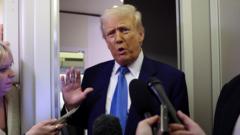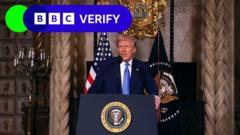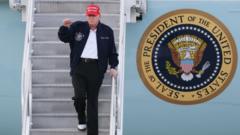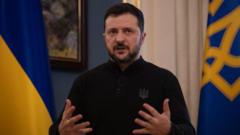This article examines the implications of this diplomatic engagement, highlighting the meeting's symbolic importance and the release of political prisoners as a potential step towards fostering better bilateral relations.
**U.S. Diplomacy Shifts: A Quiet Engagement with Belarusian Leadership**

**U.S. Diplomacy Shifts: A Quiet Engagement with Belarusian Leadership**
A senior American official's discreet visit to Belarus indicates a notable change in U.S. foreign policy, aiming for improved relations with a nation previously isolated due to its authoritarian regime.
The recent meeting between a U.S. diplomat and Belarusian President Aleksandr G. Lukashenko marks a significant turn in the U.S. approach towards Belarus, traditionally aligned with Russia. The low-profile visit, part of a broader diplomatic recalibration, follows a phone call between President Trump and President Putin, underscoring an apparent shift from policies of isolation toward dialogue.
Christopher W. Smith, Deputy Assistant Secretary of State, held discussions with Lukashenko, the first of its kind in five years. Officials from the U.S. State Department also orchestrated the release of political prisoners, including an American citizen, during this visit. Seeking to frame the operation positively, Smith referred to it as a "huge win" for U.S. policy under the "peace through strength" doctrine advocated by Trump.
Historically, the U.S. has viewed Belarus as an extension of Russia's influence, especially amidst concerns surrounding democracy and human rights violations within the country. However, a gradual thaw in relations hints at potential openings for dialogue on broader regional stability, moving away from years of adversarial posturing.
In this context, various observers express differing opinions on the ramifications of these developments. Some fear that engaging with Lukashenko may inadvertently legitimize a regime known for its repressive actions against dissidents and civil society. Others, however, argue that this engagement could create opportunities for reform or that it repositions the U.S. as a mediator in Eastern European politics.
As the situation unfolds, the ramifications of this U.S.-Belarus diplomacy remain to be seen, potentially reshaping relations in the region and impacting the broader balance of power between Russia and Western nations.
Christopher W. Smith, Deputy Assistant Secretary of State, held discussions with Lukashenko, the first of its kind in five years. Officials from the U.S. State Department also orchestrated the release of political prisoners, including an American citizen, during this visit. Seeking to frame the operation positively, Smith referred to it as a "huge win" for U.S. policy under the "peace through strength" doctrine advocated by Trump.
Historically, the U.S. has viewed Belarus as an extension of Russia's influence, especially amidst concerns surrounding democracy and human rights violations within the country. However, a gradual thaw in relations hints at potential openings for dialogue on broader regional stability, moving away from years of adversarial posturing.
In this context, various observers express differing opinions on the ramifications of these developments. Some fear that engaging with Lukashenko may inadvertently legitimize a regime known for its repressive actions against dissidents and civil society. Others, however, argue that this engagement could create opportunities for reform or that it repositions the U.S. as a mediator in Eastern European politics.
As the situation unfolds, the ramifications of this U.S.-Belarus diplomacy remain to be seen, potentially reshaping relations in the region and impacting the broader balance of power between Russia and Western nations.























